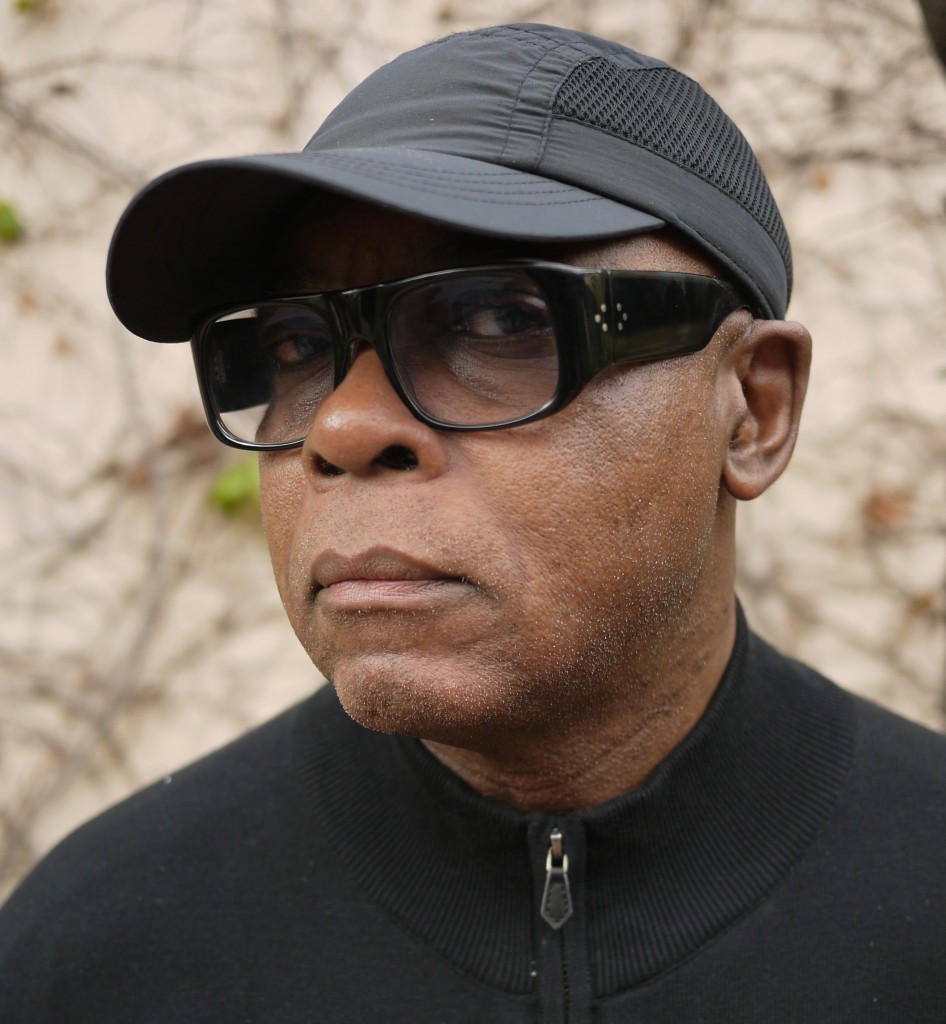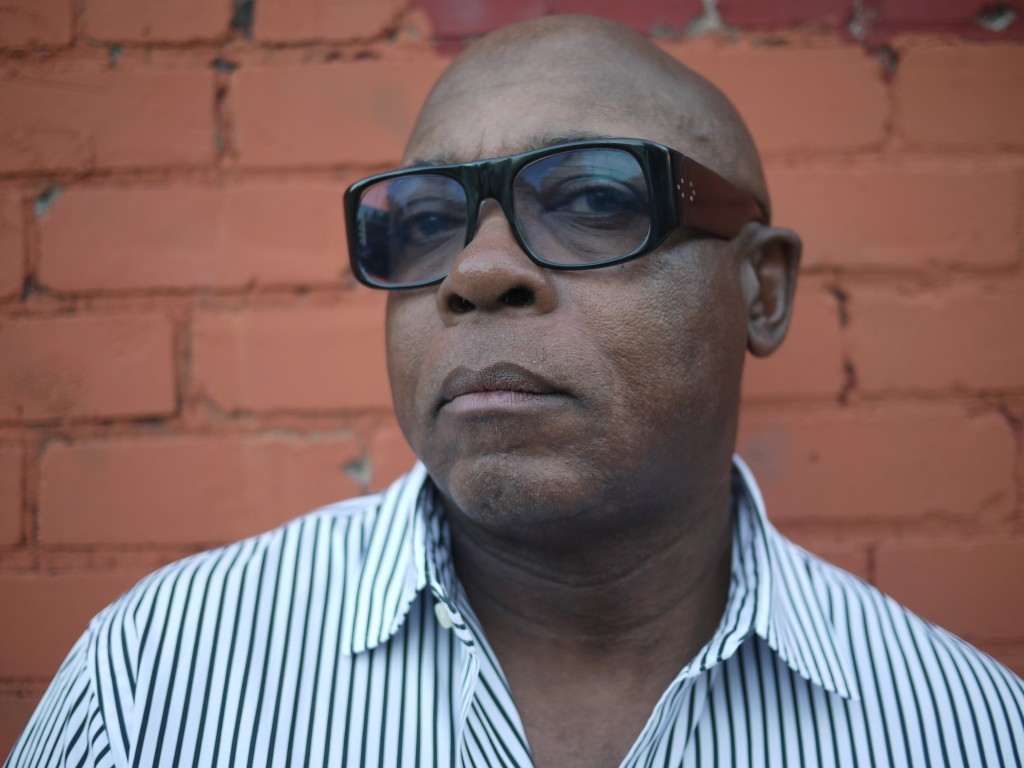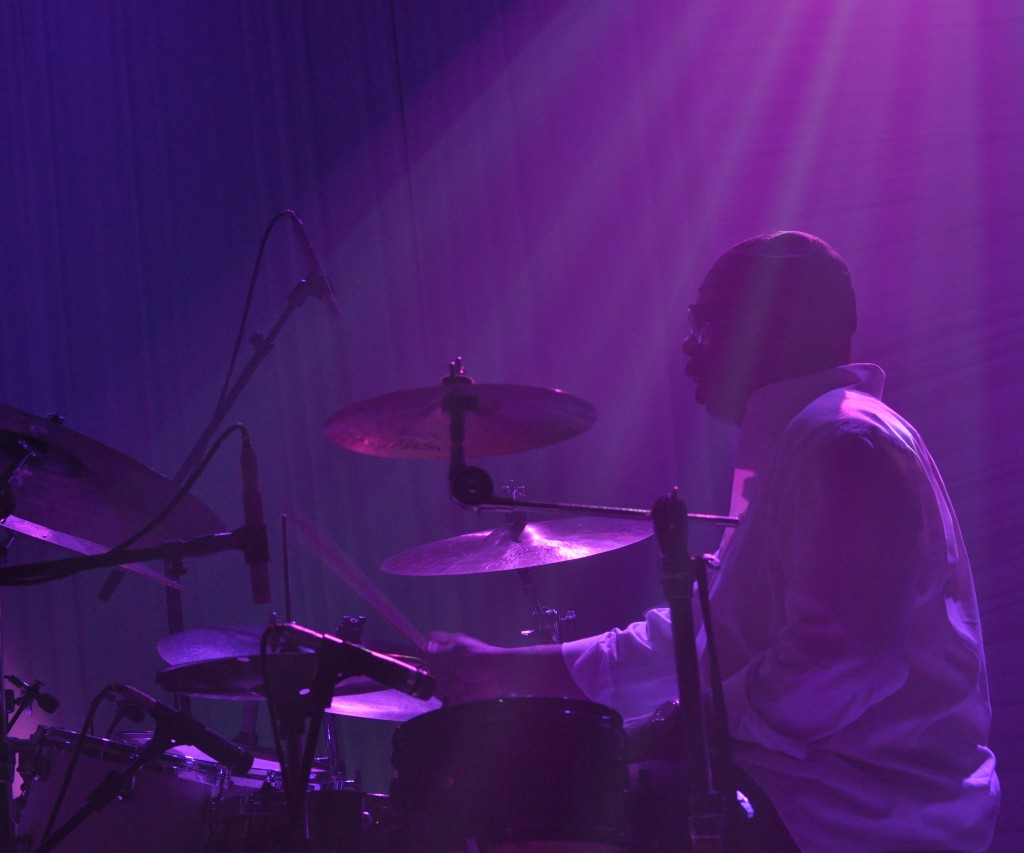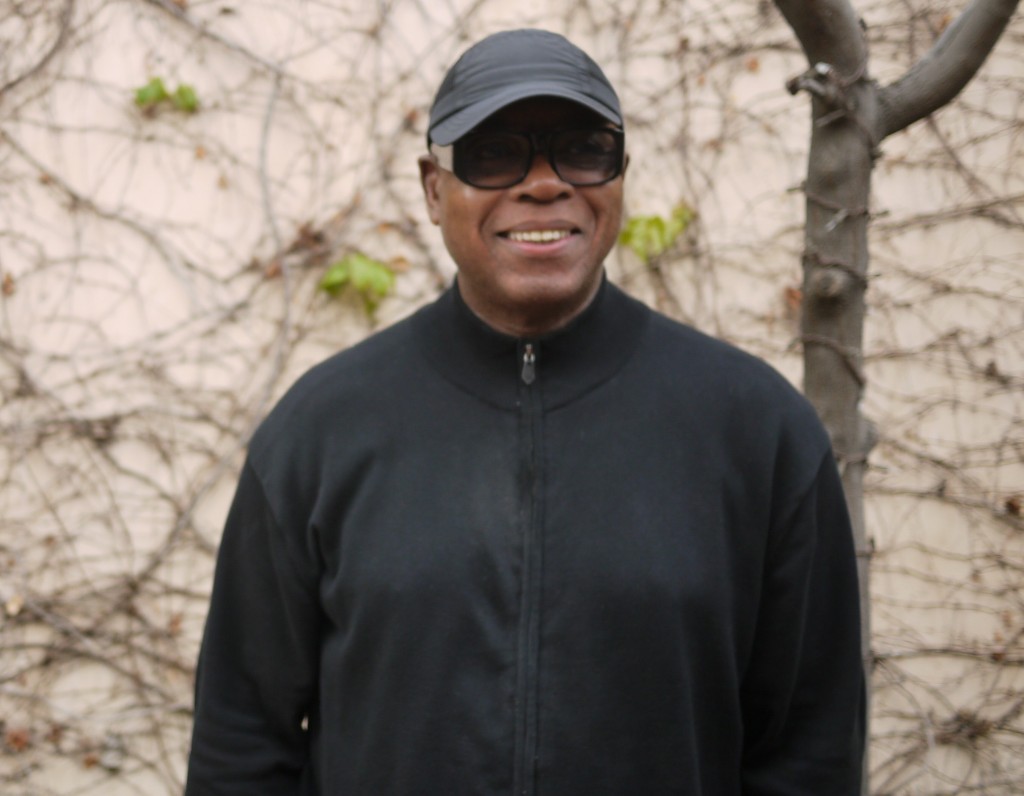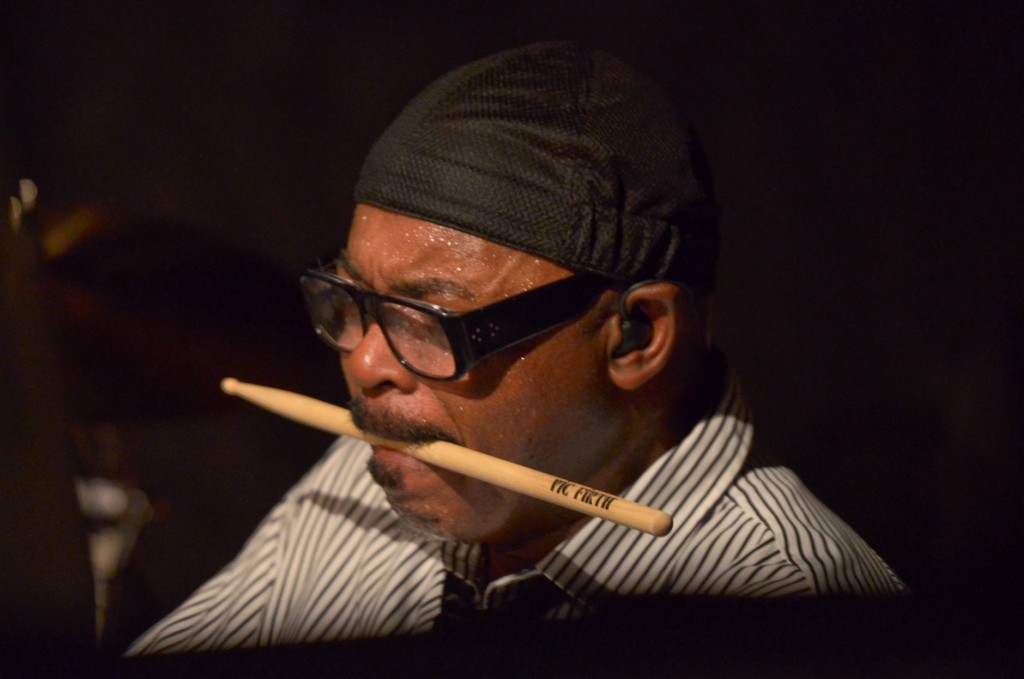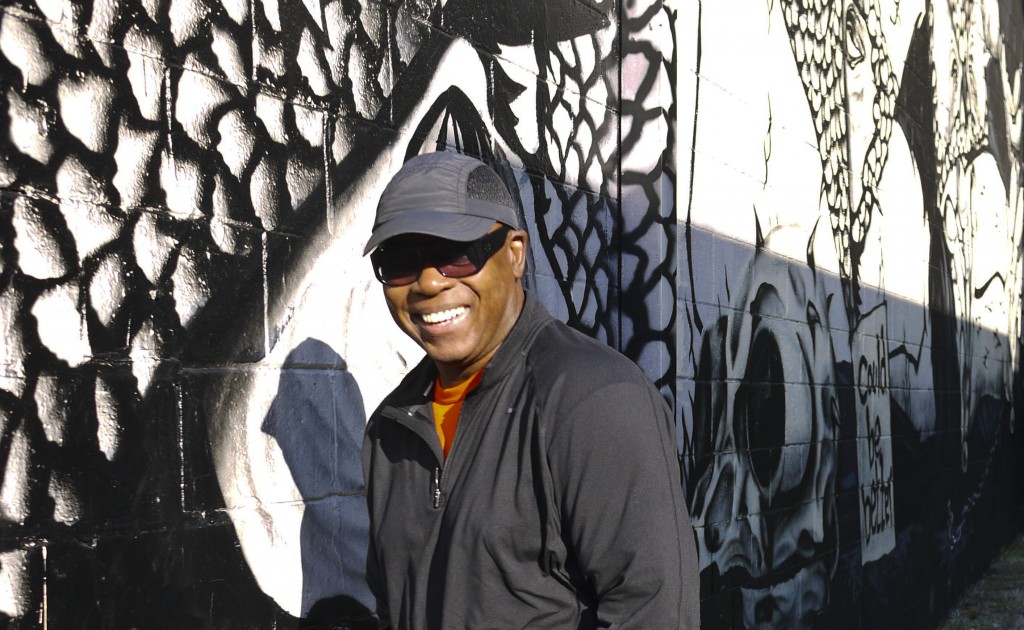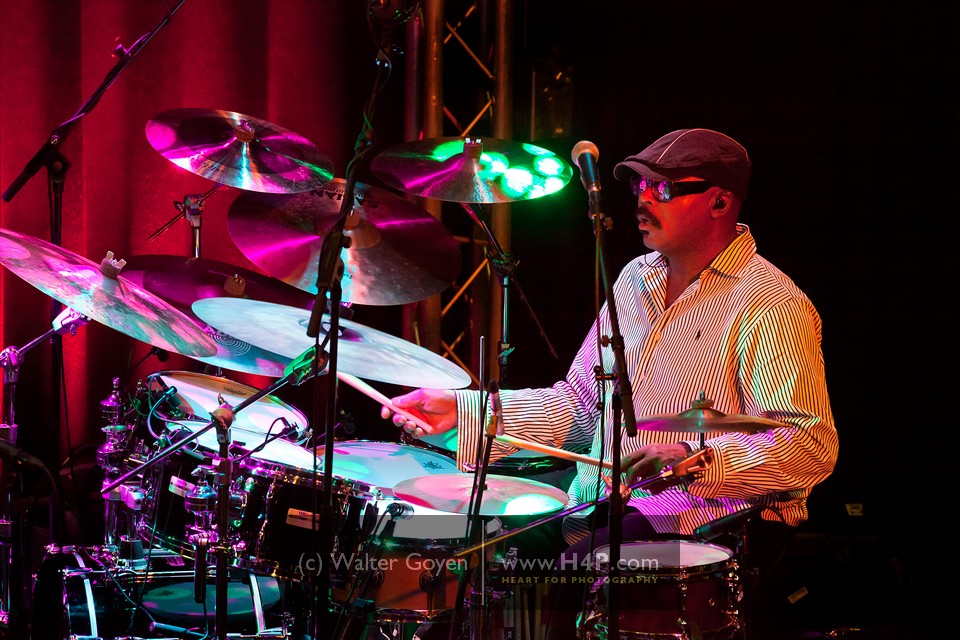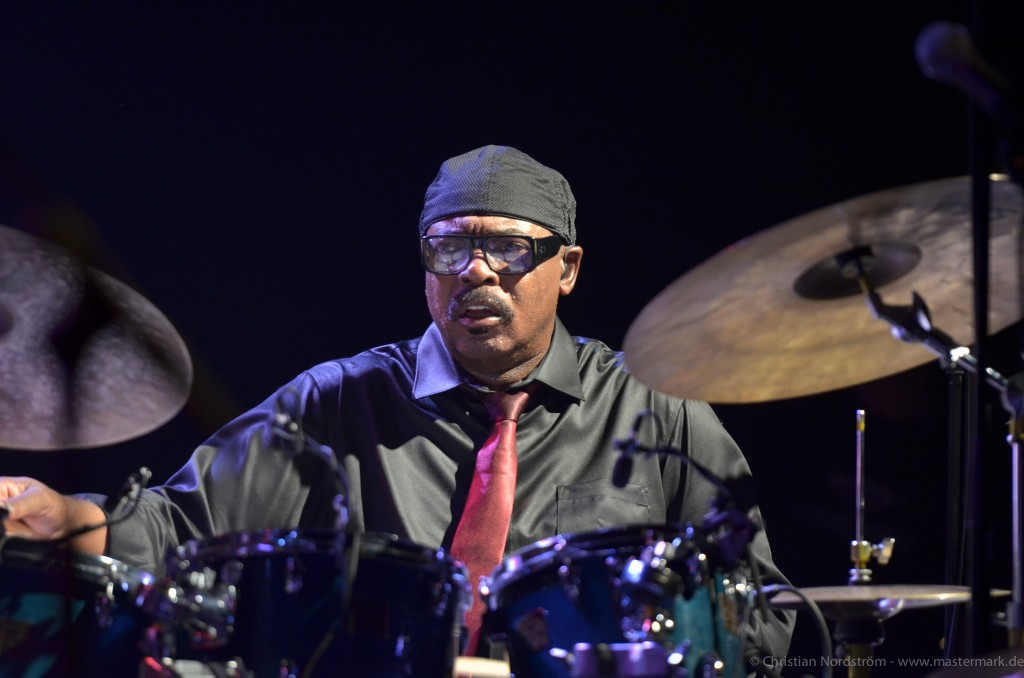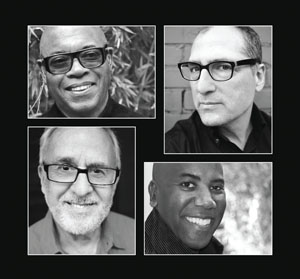Harvey Mason: The Huffington Post Interview
by Veritas on Nov.03, 2012, under Press &Reviews
A Conversation With Fourplay’s Harvey Mason
Mike Ragogna: It’s Harvey Mason, not only drummer for Fourplay, but on many project that are in everyone’s record collection. Welcome to solar-powered KRUU-FM, the midwest’s only solar-powered station, Harvey. What do you say about all that, sir?
Harvey Mason: Mike, I heard it, I’m happy to be here and I’m impressed. You’re the only solar radio station in the Midwest, that’s amazing.
MR: Thank you very, very much. I don’t understand. If we can do it, everybody else can to.
HM: Oh, they’ll get there.
MR: Yeah, hopefully it’s a growing thing. All right, we have to get right to Fourplay, Esprit De Four. I’ve spoken with two of your brothers so far, Bob James and Chuck Loeb. They were so enthusiastic about this combo. Let that be the first question. How excited are you about this latest project?
HM: Well, I’m very fortunate to call myself one of the founding members. We go back now twenty-two years and I’m still as excited now as I was twenty-two years ago. The guys are gentlemen, they are great guys and we’ve added Chuck to the mix now and it completes our circle. The band is exciting, we’ve moved to a fresh new phase with exciting new music and we’re just having a great time. We hoped when he formed the band that it would be a lasting band, that it wasn’t a flash in the pan, just a one-shot deal, and we’ve pretty much accomplished it now. We’re over twenty-one years, closer to twenty-two years now and it’s been great. The music is thriving, it’s moving forward, it’s fresh, this is our second CD with Chuck Loeb who’s the newest member of the band.
MR: Let’s Touch The Sky being the other Chuck Loeb album.
HM: Yes, Let’s Touch The Sky, which was fun, Chuck brought an exciting new piece of music that we all had to stand up and take notice and play and it’s been well-received. We continue to play to full houses primarily concerts around the world and it’s just great.
MR: Speaking of Chuck, his “Sonnymoon” one of your new signature songs.
HM: Yeah, “Sonnymoon” is a single that Chuck wrote.
MR: With the creative process, you’re sitting there with the other guys who bring in their material, you bring in your material, and then how does the Fourplay melting pot work?
HM: We actually submit songs and we try to keep it even. It’s a democratic band, we all own the band, so we try to keep it even. We submit songs and we kind of go “thumbs up, thumbs down” on whether we like it or not. When we record, the person who brought the song, who was the composer, ends up being the producer at that particular time, but it’s a joint effort. Everyone throws things in and tries to help and tries to make the song as great as it can possibly be. When you have the three guys that we have working on your song or playing your song, it can’t be bad. That’s the way it works, but the most nerve-wracking period is when you present your songs because you’re wondering if they’re going to be good enough, if the band is going to like them, and the guys are very honest. I often write many, many, many, many songs to get two or three. I think I’ve had as many as four songs on a CD in the past.
MR: Harvey, how does that work? Do you come in and play another instrument for them?
HM: Oh, I play piano as well; I play it and record it at home. Every one of us has a home studio. I bring it in recorded and it pretty much sounds pretty doggone good. We spend a lot of time on our demos and it gives the guys a very, very good idea. As you know, home recording has become almost the mode of recording because equipment is so good and so cheap that everyone can make it. Most recording is done at home; quite a bit of it is done in home studios. Even a lot of the material that we have on the CDs is stuff that I created at home. We’ll keep the strings and the horns, and stuff like that, that I made at home.
MR: Can you go over your personal history?
HM: Well, I’ve been pretty lucky. I came to LA in 1970 and my desire and my training was to be a studio musician, which I had read about in my senior year in high school. I went to New England Conservatory and graduated with a Bachelors’ in Music Education and Performance, came right out here and fortunately was able to get into studios and have had a marvelous, marvelous career. I’ve played with so many people that I never really noticed that I was playing with so many people until after it was compiled on the internet. I just kept going. I haven’t even heard half the records I’ve played on, to tell you the truth.
MR: All right, well let me remind you about some of them in case you want to break out that glass of wine and sit in front of the speakers.
HM: I couldn’t even begin that process. It’s so massive. I just think it’s massive. And I’ve played with so many movies, it’s just crazy. With TV shows, singles, commercials…it’s been wonderful.
MR: I want to throw some classic you’re on out there, like George Benson’s breakthrough album,Breezin’. That album is a pivotal album for jazz/pop in the seventies.
HM: Oh yeah, I did three or four CDs with George. They were huge records. Live On Broadway and Breezin’ were fun, and I just did George’s newest record as well.
MR: Also you played with Beck on his album The Information.
HM: Yes I did. It’s so wide, that’s what I love most about my career. It’s been varied and the music has been varied, because I find myself getting bored pretty easily. So for me, to work in the studio has been great. I didn’t go on the road, I just worked on a different project every day, a different kind of music, and that’s the challenge I love.
MR: I believe you add elements to a recording that puts it over the top.
HM: I give my heart in every single session I’ve done, and I get into the music. I love all kinds of music and I try and really be as authentic as possible and give from my heart. That’s why I think it’s worked out.
MR: Let’s throw out a couple more projects you were on, like Chick Corea’s The Mad Hatter and My Spanish Heart. There’s Herbie Hancock’s Head Hunters, Man-Child and Mr. Hands. You worked with Donald Byrd…by the way, I feel like Donald Byrd, weirdly, is still somebody people are trying to figure out.
HM: Right. Well, he was at the beginning of the explosion of crossover music and fusion and I was at the beginning, I worked with Blue Note a lot and the famous producers, the Mizell Brothers. It was like a factory there, we were working with all kinds of Blue Note artists and they were all big gold records. Donald Byrd was one of those artists. It was a fun time.
MR: You also drummed for Carole King on a couple of her albums, Rhymes & Reasons and Fantasy.
HM: Yeah, I had a ball. As a matter of fact, I went on a world tour with Carole. That was one of the few tours that I went on.
MR: Didn’t you play Central Park with her Fantasy concert?
HM: Yes, I sure did.
MR: I saw you there, Harvey. I was at that concert. It was one of my favorites ever.
HM: That was an amazing concert.
MR: Yeah, it stayed with me to this day.
HM: Wow. I sure did play Central Park with her.
MR: Yeah, it was a beautiful thing. Another classic album you were on was Kenny Loggins’ Celebrate Me Home, which to this day, I think is his best. It’s a wonderful album.
HM: That was fun, you know? Oh yeah.
MR: More artists whose projects you played on include Lee Ritenour, Diane Schuur, Donna Summer…
HM: Sure, and Seal, Frank Sinatra, Barbra Streisand…you can keep going on and on. James Brown, Roy Clark…it goes on and on.
MR: Chet Atkins as well. All right, Harvey, with you’re being in Fourplay and also looking at the career that you’ve had, what are your thoughts?
HM: I feel very fortunate, and I’m still trying to move forward. Of course, I have a number of solo record as well and I’ve been very happy to receive a lot of acclaim with those and I’m moving toward producing a new record of mine, a CD which will be out next year or 2014, and it’s probably going to be called Chameleon. So I’m still moving forward. I love what I’ve done, but I’m not resting on it. I’m still moving forward and trying to create new projects and new music. I’m trying to grow, listening to a lot of young people, everything that’s going on. I’m still very, very excited. There’s the collaboration that’s going on with Fourplay as well, they’re wonderful people. These are three master musicians who can play anything. The sky’s the limit and we’re still moving in all kinds of directions. When you see us live, I think it speaks for itself. They just love it. Our response is so great. It’s fun to play with these master musicians who all commit themselves to the band and the band’s moving forward. I love Fourplay. The new CD Esprit De Four is a perfect platform for our CD. It’s about unity, all for one, one for all, and that’s what the band feels like and has always felt like.
MR: Everyone I’ve interviewed from Fourplay has said something like, “This is a group, this is not about me.” The modesty is beautiful and I do recognize it. Thank you.
HM: Well, I have to tell you that to be together with those guys for twenty-one years, Bob and Chuck and Nathan, and still love each other, or love each other even more, it says a lot for their characters. Those guys are all great, great, great individuals. I’ve been very fortunate to hook up with them. I met Bob first and we were friends, we became golfing buddies and friends going way back to Grover Washington’s record that we played on, Mister Magic, and we’ve remained friends. He doesn’t play golf anymore, I’m sorry about that, but it’s been great and I hope it continues the same way. We don’t know how long it’s going to go but we’re going to ride it as long as we can.
MR: I have to ask you my traditional question. What advice do you have for new artists?
HM: New artists? Believe in yourself, work extremely hard, don’t take “no” for an answer if you really believe in yourself and you really feel that you have something, and just continue to go for it. There are so many ways of going for it now; look for new ways to get your music out there. I think the internet and playing live and things like that are kind of what you have to do. You can create a lot of music at home, you don’t have to have megabucks to do it anymore, so I think with the advent of the internet, I think it opens a lot of doors to a lot of people and a lot of different types of diverse music. So I just say believe in yourself and just work hard and go for it.
MR: Is this the advice you would give to your best friend in the world, Harvey Mason, Jr.?
HM: My very best friend in the world, Harvey Mason, Jr., has gone for it and he’s probably one of the best producers in the world.
MR: I love his work with Justin Timberlake and Luther Vandross, especially.
HM: Oh yeah, he’s worked with everybody and he’s been really happy. At the time, I think Harvey was actually going to be a professional basketball player. He was All-American in high school and he was playing at University of Arizona; he played in the final four. In his senior year, at the thirteenth game, he blew out his ACL. He came back, they had a brace for him but it was finally blown out again against Oregon. He blew it out, he went in and he had surgery, and he probably could’ve had a chance to play pro because he was a really great player, but he wasn’t excited about it. Music was in his heart because he’s been with music and been with me from the very beginning. He started working with me and next thing you know, we were passing tapes around and next thing you know, he’s gone. It’s all over. I’ve been very fortunate and very proud of him.
MR: Yeah, and also he contributed to the culture in big ways too, like with Dreamgirls.
HM: Oh yeah, oh yeah. He’s done a couple of movies. He did the LeBron James story as well.
MR: Looking at your family’s genetics, they need to bottle the DNA.
HM: [laughs] I guess so. I came from my mom, she was pretty gifted even though she never pursued music, but she was very funny. When I was practicing as a kid, I started playing at seven or eight, taking lessons, and she could tell when something wasn’t right. She’d be in the room and she’d go, “That’s not right! That’s not right!” She had no training. It was really funny.
MR: Boot camp with your mom.
HM: Right. Boot camp with my mom.
MR: Harvey, you’ve had great success with Fourplay, plus your solo career is a little overwhelming.
HM: Oh, I’m sure it does, but I’m happy to focus on Fourplay, because that’s why we’re here. The main focus of my life right now is Fourplay and the togetherness in that band and moving forward with that band, so I appreciate you focusing on that and I hope the people really take time to listen to Fourplay and really get something from the music, because the music is really special. It’s from the heart and it’s special. These guys are amazing. Come out to see us live. You’ll hear the music, but you’ll hear how it grows. You’ll hear how jazz really works.
MR: You’ve got it. I think the way you guys look at jazz right now is taking a cue from the fifties, and sixties, a couple of decades of very cool jazz.
HM: Oh yeah. Bob’s having spent his time with Sarah Vaughan, my time with a lot of the old masters as well, and Chuck’s having played with Stan Getz, and Nathan’s having played with Hubert Laws and a lot of the other old masters. So we’ve all come out of the traditional background and it’s a big part of our music and it comes out in special ways–not necessarily in the standard type of swing, but it’s there and the discerning listener can hear it.
MR: Nice. All right Harvey, this has been wonderful, I really appreciate your time.
HM: I will. Mike, thank you very much and I look forward to hearing the interview. I’m going to listen to the solar-station.



